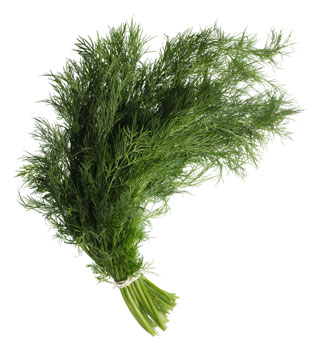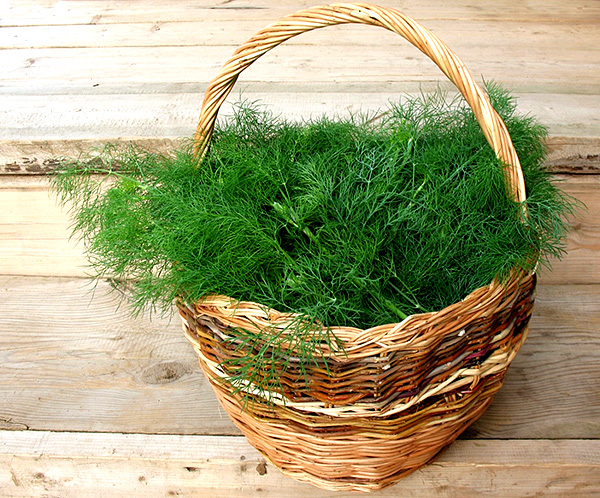Dill is probably the herb with the longest “career” in the world, its use as an spice in foods, but also as a medicine is mentioned in Egyptian Papyri of over 4,000 years old. Dill has been widely used in Tibetan medicine (Unani) and the Indian (Ayurveda), which was used as a digestive tonic, anti-infective and anti-inflammatory herb.
In antiquity, Romans cherished the dill herb, which was a first-aid remedy for digestive disorders and headaches which appeared after partying too much. In folk medicine, fresh juice or decoction made from the stems of dill was given against heart disease and cough, but also for various “female disease” or the “womb disease”.
The secret of the delicate leaves, green, amber, is because the aromatic oil of the plant, a substance with excellent therapeutic properties. The aroma of dill oil, acts in particular on our digestive and nervous system, but has some other beneficial actions, as we will see below:
Dill and the digestive diseases:
Green dill has the gift to keep us from a lot of problems such as indigestion, bloating or hypo-acidity. Dill is helpful for colitis, because the aromatic substances it contains prevent bacteria to grow in the intestine. People who deal with these issues would have to consume more food spiced with dill, or to eat salads with plenty of dill and olive oil, plus a bit of lemon juice.
Dill and our nervous system:
In traditional medicine of many European nations, dill is known for its balancing effects on the nervous system. Chewing a few stems of green dill can effectively combat headaches (including those accompanied by nausea and vomiting), sharpness and clarity of the senses, and can combat fatigue.
Dill and urinary system:
Eating four tablespoons of fresh dill juice (obtained by centrifugation), 3-4 times per day, in a two-week cure, is a potent stimulant of kidney activity, help prevent and combat kidney stones, being a good remedy in combating cystitis and kidney infections. This remedy is especially indicated for side effects, but can not be taken for long periods of time.
Dill and post-pregnancy mood in women:
Fresh dill leaves, chewed daily by women who have recently gave birth, are an excellent nerve and physically tonic, helping to regain appetite, stimulates lactation, improves quality of milk, favoring to regain the psychological tone.
Dill and femininity:
Dill leaves contain small amounts of estrogen, the female hormone that softens skin, makes the hair growth to grow more slowly, helping to increase natural breasts, really slows down the aging process. Salads seasoned with dill is so much recommended in this period, when the plant has a maximum therapeutic power, being a true elixir of beauty.

